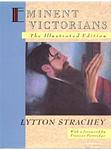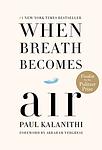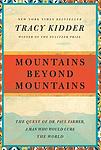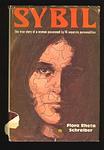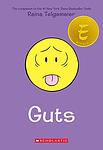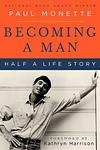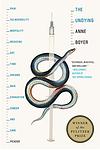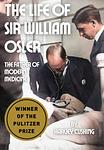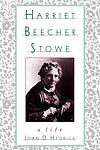The Greatest "Biography, Medicine" Books of All Time
Click to learn how this list is calculated.
This list represents a comprehensive and trusted collection of the greatest books. Developed through a specialized algorithm, it brings together 300 'best of' book lists to form a definitive guide to the world's most acclaimed books. For those interested in how these books are chosen, additional details can be found on the rankings page.
Genres
Biography is a genre of literature that focuses on the life story of a person, typically a historical figure or a celebrity. It provides a detailed account of the subject's life, including their upbringing, achievements, struggles, and personal relationships. Biographies can be written in various formats, including memoirs, autobiographies, and third-person narratives. This category of books offers readers an opportunity to gain insight into the lives of notable individuals and their impact on society.
The "Medicine" category of books encompasses a wide range of topics related to healthcare, including medical research, clinical practice, pharmacology, and public health. These books may cover topics such as disease prevention, diagnosis, treatment, and management, as well as the social, ethical, and political issues surrounding healthcare. The category includes both academic and popular works, and is intended for healthcare professionals, students, and anyone interested in learning more about medicine and healthcare.
Countries
Date Range
Reading Statistics
Click the button below to see how many of these books you've read!
Download
If you're interested in downloading this list as a CSV file for use in a spreadsheet application, you can easily do so by clicking the button below. Please note that to ensure a manageable file size and faster download, the CSV will include details for only the first 500 books.
Download-
1. Eminent Victorians by Lytton Strachey
"Eminent Victorians" is a biographical work that profiles four influential figures from the Victorian era. The book provides an in-depth look into the lives of Cardinal Manning, Florence Nightingale, Thomas Arnold, and General Gordon, exploring their respective contributions to British society during the 19th century. Through these portraits, the book offers a critical and often satirical analysis of Victorian values, institutions, and moral attitudes, challenging the idealized narrative of the era.
-
2. The Immortal Life of Henrietta Lacks by Rebecca Skloot
The book tells the story of Henrietta Lacks, a poor African American tobacco farmer whose cells, taken without her knowledge in 1951, became one of the most important tools in medicine, vital for developing the polio vaccine, cloning, gene mapping, and more. Henrietta's cells have been bought and sold by the billions, yet she remains virtually unknown, and her family can't afford health insurance. The book explores the collision between ethics, race, and medicine; of scientific discovery and faith healing; and of a daughter consumed with questions about the mother she never knew.
-
3. When Breath Becomes Air by Paul Kalanithi
This poignant memoir is a reflection on life and death by a young neurosurgeon who is diagnosed with terminal lung cancer. He grapples with the role reversal from doctor to patient, and confronts the reality of his mortality. The narrative explores the intersection of medicine and philosophy, and the meaning of life when faced with death. Despite his deteriorating health, he continues to find joy in his relationships and work, leaving behind a powerful message about the value of every moment.
-
4. Mountains Beyond Mountains: One doctor's quest to heal the world by Tracy Kidder
The book is a compelling narrative about a dedicated doctor who leaves behind his comfortable life in America to work in the poorest regions of Haiti. His mission is to combat diseases like tuberculosis and AIDS, which are rampant in these areas. Despite facing numerous challenges, including lack of resources and political instability, his relentless determination and commitment to his cause lead to significant improvements in healthcare for these underserved populations. The story is a testament to the power of one individual's unwavering commitment to making a difference in the world.
-
5. The Noonday Demon by Andrew Solomon
"The Noonday Demon" is a comprehensive exploration of depression, drawing on the author's own struggle with the illness and interviews with fellow sufferers, doctors, and scientists, drug designers, and philosophers. It examines depression in personal, cultural, and scientific terms, covering aspects like the complexities of different treatments and the impact of the disease on various demographic populations. The book also delves into the thorny moral and ethical questions posed by emerging biological explanations for mental illness.
-
6. Sybil by Flora Rheta Schreiber
The book is a true story about a woman who, after suffering severe physical and emotional abuse as a child, developed sixteen different personalities as a coping mechanism. The narrative follows her journey with her psychiatrist as they attempt to fuse her multiple identities into one through therapy and treatment. The book offers an in-depth look at Dissociative Identity Disorder, its causes, manifestations, and treatment.
-
7. Hidden Valley Road by Robert Kolker
"Hidden Valley Road" by Robert Kolker is a non-fiction book that tells the story of the Galvin family, who had 12 children, six of whom were diagnosed with schizophrenia. The book delves into the family's struggles with mental illness, the medical community's understanding of schizophrenia at the time, and the impact the family's situation had on each member. It also explores the history of schizophrenia research and treatments, as well as the Galvin family's contribution to advancing our understanding of the disease.
-
8. This House of Grief by Helen Garner
This book is a true crime story about a man who is accused of murdering his three sons by driving them into a dam in Australia. The narrative follows the court case, providing a detailed account of the proceedings and evidence presented. It also delves into the emotional turmoil of the family and community, exploring themes of grief, loss, and the search for truth. The author's journalistic style of writing offers a balanced and thoughtful perspective on this tragic event.
-
9. Smile by Raina Telgemeier
"Smile" is a heartfelt graphic novel memoir that follows the life of Raina, a sixth-grade girl who experiences a life-changing accident when she injures her two front teeth. Through a series of dental surgeries and awkward encounters, Raina navigates the ups and downs of middle school, friendship, and self-discovery. With her signature humor and relatable storytelling, Raina's journey of finding her own voice and embracing her imperfections is both inspiring and empowering.
-
10. Borrowed Time by Paul Monette
"Borrowed Time" is a memoir that chronicles the life of a man and his partner, both diagnosed with AIDS. The narrative provides a deeply personal and raw account of their battle with the disease, highlighting the fear, courage, and love they experienced. The book also sheds light on the early years of the AIDS epidemic in the United States and the lack of understanding and stigma associated with the disease at the time.
-
11. What The Eyes Don't See by Mona Hanna-Attisha
"What The Eyes Don't See" is a gripping memoir that recounts the true story of a courageous pediatrician who unraveled the devastating water crisis in Flint, Michigan. Faced with skepticism and resistance from powerful institutions, she relentlessly pursued justice for the community, ultimately exposing the government's negligence and the toxic lead contamination that had been poisoning the city's residents for years. This powerful narrative sheds light on the importance of activism, resilience, and the fight for truth in the face of adversity.
-
12. Is There No Place On Earth For Me? by Susan Sheehan
This book provides an in-depth exploration of mental illness, specifically schizophrenia, through the four-year journey of a woman suffering from the condition. The book offers a detailed account of her experiences in and out of psychiatric facilities, her struggles with the symptoms of her illness, her interactions with the mental health system, and the impact of her condition on her daily life. The narrative is a profound examination of the complexities of schizophrenia and the challenges faced by those who suffer from it.
-
13. Becoming a Man: Half a Life Story by Paul Monette
"Becoming a Man: Half a Life Story" is a poignant autobiography that explores the author's journey of self-discovery and acceptance as a gay man in America. The narrative delves into his struggles with his identity, his experiences of homophobia, his life in the closet, and his eventual coming out. The book also documents his relationships, particularly with his long-term partner who succumbed to AIDS, and his own battle with the disease. The memoir serves as a powerful commentary on the societal attitudes towards homosexuality during the 20th century.
-
14. The Undying: Pain, vulnerability, mortality, medicine, art, time, dreams, data, exhaustion, cancer, and care by Anne Boyer
The book is a deeply personal and critical exploration of the author's experience with breast cancer. The narrative addresses the physical and emotional toll of the disease, the complexities of the medical industry, and the societal expectations and realities of illness. It also delves into the intersection of art, data, and time in the context of health and mortality. This work is not just a memoir of the author's journey with cancer, but also a critique of the ways in which illness is perceived and treated in contemporary society.
-
15. The Life of Sir William Osler by Harvey Cushing
This biography explores the life and career of Sir William Osler, a Canadian physician and one of the four founding professors of Johns Hopkins Hospital. Detailing his contributions to the medical field, the book highlights Osler's innovative teaching methods, his advocacy for a strong doctor-patient relationship, and his belief in lifelong learning for medical professionals. The biography also delves into Osler's personal life, his upbringing, education, and the influence he had on modern medicine.
-
16. Booker T. Washington: The Wizard of Tuskegee, 1901–1915 by Louis R. Harlan
This book delves into the life and influence of Booker T. Washington during his time as the head of Tuskegee Institute from 1901 to 1915. The narrative explores Washington's political and social strategies, as well as his controversial policies, as he navigated the complexities of post-Reconstruction America. It also examines his relationships with key figures of the era, his efforts to promote African American education and economic self-reliance, and his enduring legacy in the fight for civil rights.
-
17. Harriet Beecher Stowe: A Life by Joan D. Hedrick
This book is a comprehensive biography of Harriet Beecher Stowe, the renowned author of "Uncle Tom's Cabin". It delves into her personal life, her family upbringing, her marriage, and her relationships with her children. The book also explores her fervent abolitionist beliefs, her writing career, and the impact of her work on the American Civil War. It paints a vivid picture of Stowe's life and times, providing an in-depth look at her contributions to American literature and social reform.
Reading Statistics
Click the button below to see how many of these books you've read!
Download
If you're interested in downloading this list as a CSV file for use in a spreadsheet application, you can easily do so by clicking the button below. Please note that to ensure a manageable file size and faster download, the CSV will include details for only the first 500 books.
Download